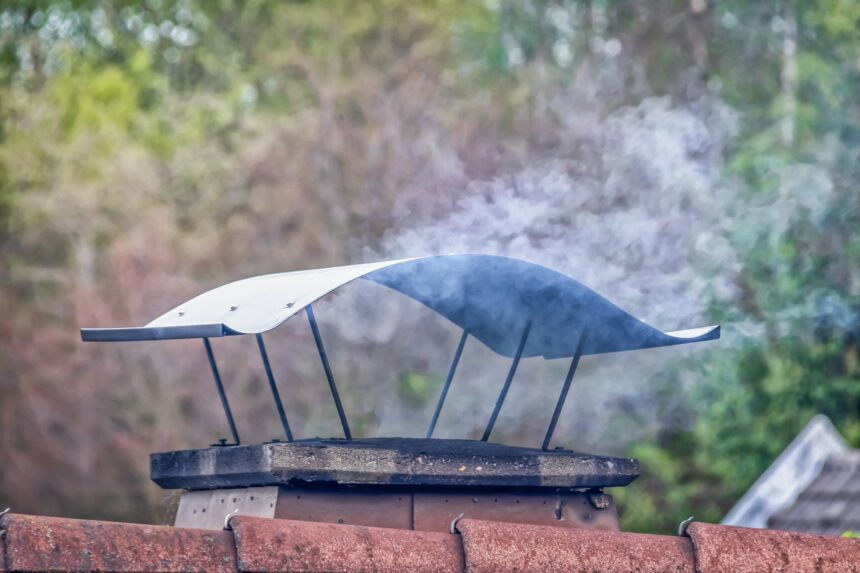Air quality tends to decline in the winter months. Stagnant air in your home can pose health problems if not properly taken care of, and sometimes it can be more polluted than the air outside. You may be surprised to know that 6% of all deaths in low-income countries are due to poor indoor air quality.
Those affected most by indoor air pollutants are children, people with lung diseases or asthma, and the elderly. If you’re looking to keep your home and those living with you healthy this season, here are 10 ways you can improve your air quality.
1. Dust Regularly
Dust happens. It finds its way into the corners and crevices of your home and on your furniture. You need to understand the health risks of dust. Dust is a respiratory irritant, so to improve health and air quality, it must be removed.
Take cushions and rugs outside and bash them to loosen and get rid of dirt. Keep surfaces free of clutter, and wipe them clean with a damp rag to pick up all the particles and mites.
2. Open the Windows on Warmer Days
In the winter, many people keep their homes sealed tight. It keeps the warm air in and the cold air out. While keeping everything airtight will save you energy and money, it can also leave the air stagnant, not allowing it to circulate and holding in pollutants.
On the chance of a warmer winter day, open your windows and doors for a little while to cycle out the air. This will get rid of pollutants and germs to improve air quality. Additionally, try to open the windows when you clean to get rid of chemical fumes.
3. Replace Filters
Filtering is very important for ensuring high quality air. Filters in your air conditioning units and ventilation systems should be cleaned or replaced for the winter. This allows them to better trap pollutants that may come in from the outdoors.
Air filtration systems also catch pollutants and other particulate matter. Those in your home with allergies may suffer if the filters aren’t clean.
4. Vacuum Rugs and Carpets
Area rugs and carpets are home to dirt, dust and anything else you might bring in from the outdoors. Their woven nature traps and holds all varieties of pollutants, which is both good and bad — they keep the particles from floating around your home but also build up if not vacuumed.
A vacuum cleaner with a high-efficiency particulate air (HEPA) filter works best, but any regular vacuuming will improve your home’s air quality during the winter.
5. Use an Air Purifier
An air cleaner improves the air in your home by filtering out contaminants like odors, dust and mold and then circulating cleaner air. HEPA filters in air purifiers can remove anywhere between 70-95% of particles, depending on their size.
You’ll keep your family and anyone who comes into your home healthy and safe from harmful pollutants by using an air purifier.
6. Add Indoor Plants
Plants naturally filter the air. They improve air quality and are a great way to decorate your home. Lilies, ferns and palm trees are known to work best for filtering the air.
You would have to add plants to every room of your house, but they’re a natural and cheaper substitute for other air purifiers.
7. Control the Humidity
Humidity keeps the heat in your home during the winter, but it also harbors pollutants. Mold and dust mites thrive in moisture.
Keep your humidity levels between 30-50% to put pollutants at bay. You can use a dehumidifier to reduce moisture levels and avoid overwatering houseplants.
8. Keep Air Fresheners Out
Although air fresheners and candles make your house smell amazing, they can release harmful chemicals into the air. There are more natural ways to eliminate odors.
Choose naturally scented products for your cleaners. You can also neutralize kitchen odors by using lemon or a bowl of vinegar, which will draw out bad smells.
9. Turn on the Cooking Vents
Gas stoves, and even electric burners, release contaminants harmful to your health. The chemicals can quickly enter your bloodstream, causing illness.
Since the air in your home doesn’t circulate much during winter, make sure you turn on the cooking vents. If possible, open a window as well to limit the chemicals entering the air.
10. Implement a Smoke-Free Policy
During the winter and all times of the year, keep your home smoke-free. Toxic particles from tobacco can remain harmful for hours.
Secondhand cigarette smoke contains thousands of chemicals that increase your chance of respiratory infections, asthma and cancer.
Stay Warm and Healthy With Clean Air
Your chances of the common cold and respiratory problems can escalate during the winter, especially if your home’s air quality is suffering. Use these tips and practices to stay healthy this season.









